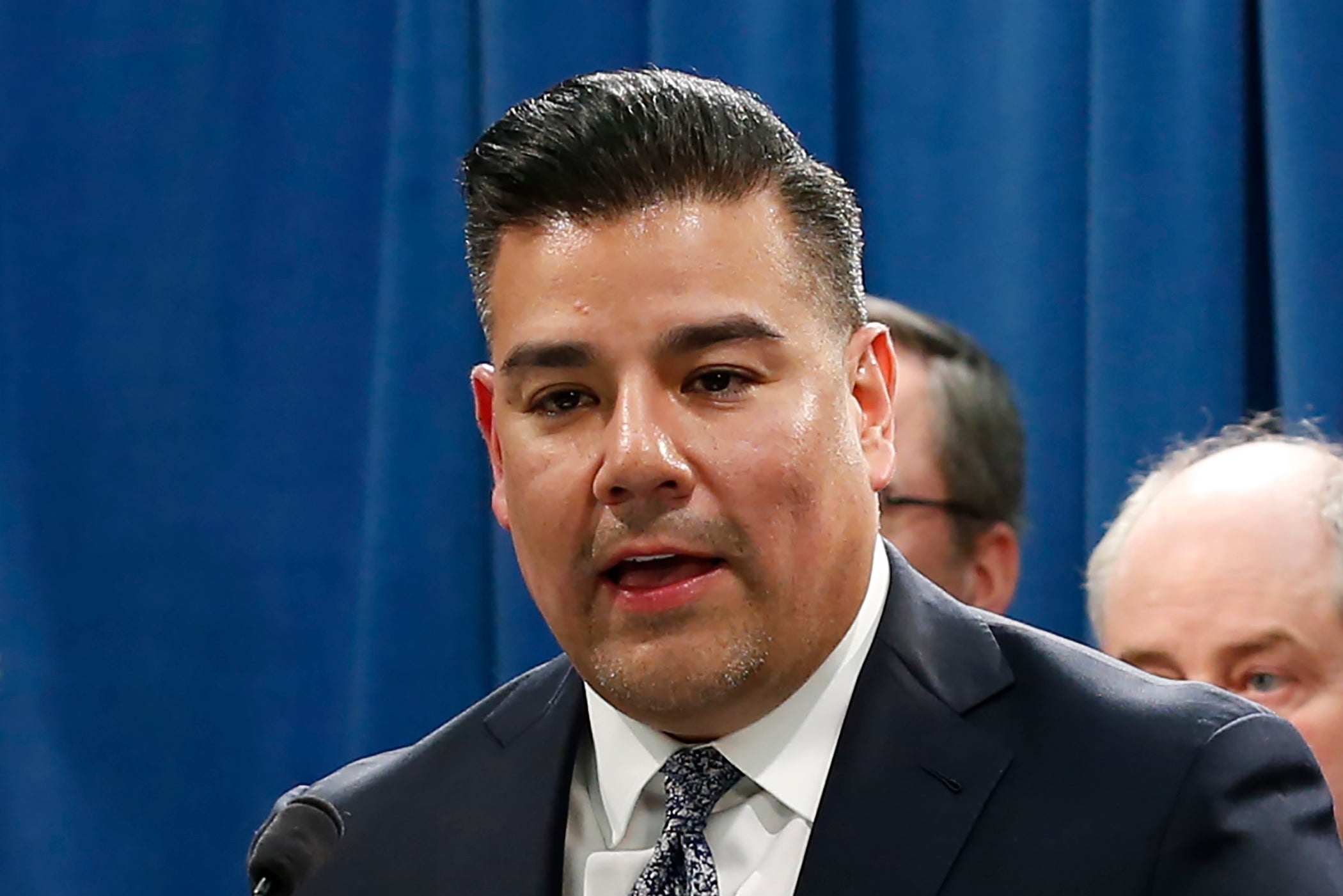Battle over California fire insurance policies intensifies
A California insurance pool is appealing a judge's order that it offer homeowners more options for coverage

Your support helps us to tell the story
From reproductive rights to climate change to Big Tech, The Independent is on the ground when the story is developing. Whether it's investigating the financials of Elon Musk's pro-Trump PAC or producing our latest documentary, 'The A Word', which shines a light on the American women fighting for reproductive rights, we know how important it is to parse out the facts from the messaging.
At such a critical moment in US history, we need reporters on the ground. Your donation allows us to keep sending journalists to speak to both sides of the story.
The Independent is trusted by Americans across the entire political spectrum. And unlike many other quality news outlets, we choose not to lock Americans out of our reporting and analysis with paywalls. We believe quality journalism should be available to everyone, paid for by those who can afford it.
Your support makes all the difference.Massive wildfires are making it harder for some California homeowners to get property insurance, pitting the state's insurance commissioner against the industry in an escalating conflict that will likely stretch into 2022's statewide elections.
Private insurance companies often won't sell policies to people who live in wildfire-prone areas because the risk is too great. When this happens, state law requires these companies to pool their money to provide coverage for people who can't buy policies because of where they live.
That pool — the California Fair Access to Insurance Requirements Plan — only sells fire insurance, often forcing homeowners to buy a separate policy for things like liability. Insurance Commissioner Ricardo Lara, a Democrat, has ordered the pool, also known as the FAIR Plan, to sell more than just fire insurance. He says this will save homeowners the money and hassle of having to buy multiple plans.
But the companies that fund the FAIR Plan say that's not true, arguing Lara's order will increase costs for consumers. They say his order is “illegal” because it would put them in direct competition with the private insurance market. Thursday, they asked a judge to block Lara's order while they appeal a lower court's decision from earlier this year that directed them to comply.
“The FAIR Plan was never meant to compete with traditional insurance carriers that already provide these coverage options," FAIR Plan president Anneliese Jivan said, adding she hopes to “protect consumers from unnecessary rate increases.”
Lara accused the insurance industry of “once again putting its profits ahead of the needs of California consumers.”
“Forcing its policyholders to purchase separate insurance policies for liability and contents, often from the very same insurance companies who dropped their coverage in the first place, only drives up the price for consumers,” said Lara, who will be up for reelection next year. “The FAIR Plan's purpose is to take all comers. I believe it is falling short of its purpose and mission to be there for consumers when they need it most.”
Since 2018, California has had more than 32,700 wildfires that destroyed more than 38,400 structures and burned more than 13,220 square miles (34,239 square kilometers), according to the California Department of Forestry and Fire Protection. From 2015 to 2019, state data shows insurance companies declined to renew nearly 350,000 policies in areas at high risk for wildfires. That data does not include information on how many people were able to find coverage elsewhere or at what price.
California’s FAIR Plan was established in 1968, one of many such pools that sprung up across the nation following damage from urban uprisings during the civil rights movement. As of 2020, 31 states plus the District of Columbia offer FAIR Plans, according to the Insurance Information Institute.
Lara has been trying to get California's FAIR Plan to sell more comprehensive coverage since 2019. Back then, he ordered the pool to sell traditional home insurance policies that cover a range of losses other than fires.
In July, a judge ruled Lara had authority to order the FAIR Plan to sell insurance policies that also covered liability, but only if the liability is related to the property itself. Liability coverage is when someone gets injured on the property and it’s the homeowners’ fault.
The FAIR Plan says even if it starts selling these modified insurance plans, that still won't be enough to cover everything that is included in a traditional homeowner's policy. That means homeowners would still have to buy a second insurance plan for full coverage.
“Commissioner Lara is trying to place an even bigger burden on property owners by forcing the FAIR Plan to provide high-cost comprehensive policies, rather than trusting in Californians to secure the best deal on the coverages they need through available products in the voluntary insurance market,” said Spencer Kook, the FAIR Plan's attorney.